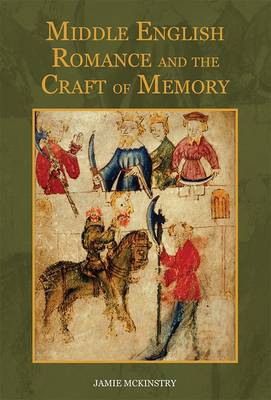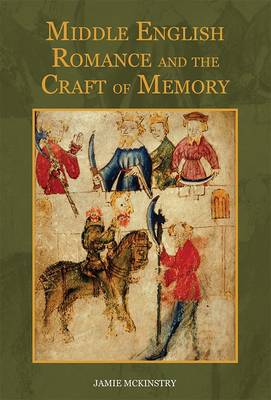
Bedankt voor het vertrouwen het afgelopen jaar! Om jou te bedanken bieden we GRATIS verzending (in België) aan op alles gedurende de hele maand januari.
- Afhalen na 1 uur in een winkel met voorraad
- In januari gratis thuislevering in België
- Ruim aanbod met 7 miljoen producten
Bedankt voor het vertrouwen het afgelopen jaar! Om jou te bedanken bieden we GRATIS verzending (in België) aan op alles gedurende de hele maand januari.
- Afhalen na 1 uur in een winkel met voorraad
- In januari gratis thuislevering in België
- Ruim aanbod met 7 miljoen producten
Zoeken
Omschrijving
In Middle English romances many memories are created, stored, forgotten, and rediscovered by both the characters and audience; such memory work is not, however, either simple or obvious. This study examines the ways in which recollection is achieved and sustained through physical, cognitive, and interpretative challenges. It uses examples such as Sir Gawain and the Green Knight, Sir Orfeo, and Emare, alongside romances by Chaucer and Malory, to investigate the genre's reliance on individual and collective memorial processes. The author argues that a tale's objects, places, dreams, discoveries, disguises, prophecies, and dramatic ironies influence that romance's essential memory work, which relies as much on creativity as it does accuracy. He also explores the imaginative crafts of memory that are employed by romances themselves. Dr Jamie McKinstry teaches in the Department of English Studies at Durham University, where he is a member of the Institute of Medieval and Early Modern Studies.
Specificaties
Betrokkenen
- Auteur(s):
- Uitgeverij:
Inhoud
- Aantal bladzijden:
- 289
- Taal:
- Engels
- Reeks:
- Reeksnummer:
- nr. 19
Eigenschappen
- Productcode (EAN):
- 9781843844174
- Verschijningsdatum:
- 15/10/2015
- Uitvoering:
- Hardcover
- Formaat:
- Genaaid
- Afmetingen:
- 156 mm x 234 mm
- Gewicht:
- 580 g

Alleen bij Standaard Boekhandel
+ 354 punten op je klantenkaart van Standaard Boekhandel
Beoordelingen
We publiceren alleen reviews die voldoen aan de voorwaarden voor reviews. Bekijk onze voorwaarden voor reviews.









